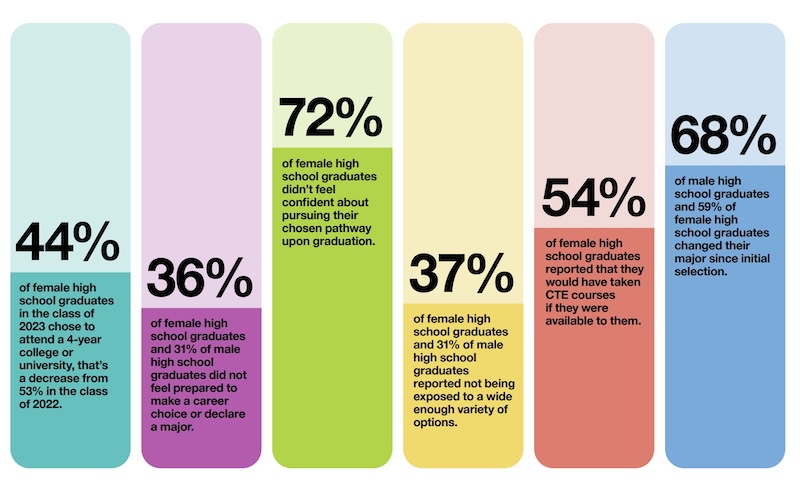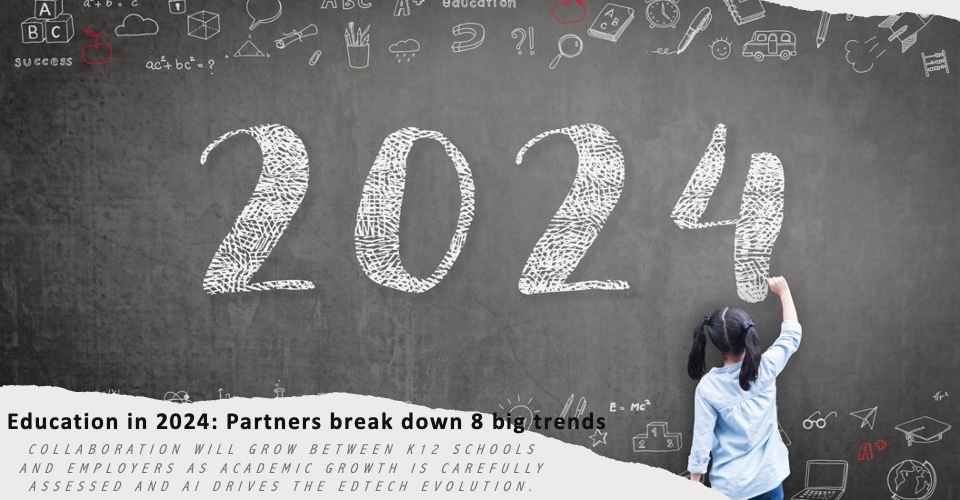Here’s a number that should startle superintendents: 72% of females who graduate high school lack confidence about their career paths, a new survey has found. That eye-opening finding is just one of many college and career gender gaps revealed in a new YouScience poll of 500 male and female students who graduated between 2020 and 2023.
Researchers say these disparities are part of an “alarming trend.” “There is a pressing need to empower females by helping them recognize their innate abilities and aptitudes and connecting them with careers or educational opportunities that align with their strengths,” said Jeri Larsen, YouScience’s chief operating officer. “By doing so, we can break down the barriers that prevent females from exploring diverse career options and taking paths that best suit their potential.”
Levels of preparedness for life after high school show another gender gap: 60% of male graduates, compared to just about one-third of their female classmates, said they felt very prepared to choose a college major or career after completing high school, according to the survey, which is part of the “2023 Post-Graduation Readiness Gender Report.”
More from DA: Superintendent search: Why are applicant pools drying up in these big districts?
When it comes to higher ed, female high school graduates are increasingly opting out of traditional four-year college. A little less than half of the class of 2023 females enrolled in a four-year college or university, compared to the 53% from the class of 2022 who followed this route. A little more than a quarter of females chose the most popular alternative, community college, while 9% said they had no plan and 17% were working, some as part of a career plan.
Here are some other troubling findings about the confidence of high school graduates:
- 34% of female high school graduates report that their schools did not provide support in discovering their aptitudes and aligning those aptitudes with career pathways.
- 78% of male high school graduates, compared to 68% of females, were informed by their high schools about employers seeking candidates with specific aptitudes.
- 71% of male high school graduates felt satisfied with their progress, compared to 63% of females.
- 83% of male high school graduates felt better prepared to choose an educational or career pathway based on their identified aptitudes, compared to 75% of females.
Those lower levels of confidence may stem from lower levels of exposure to career and technical education and similar programs, the survey warns. For example, more than half of female high school graduates said they would have taken CTE courses if those classes had been available.










